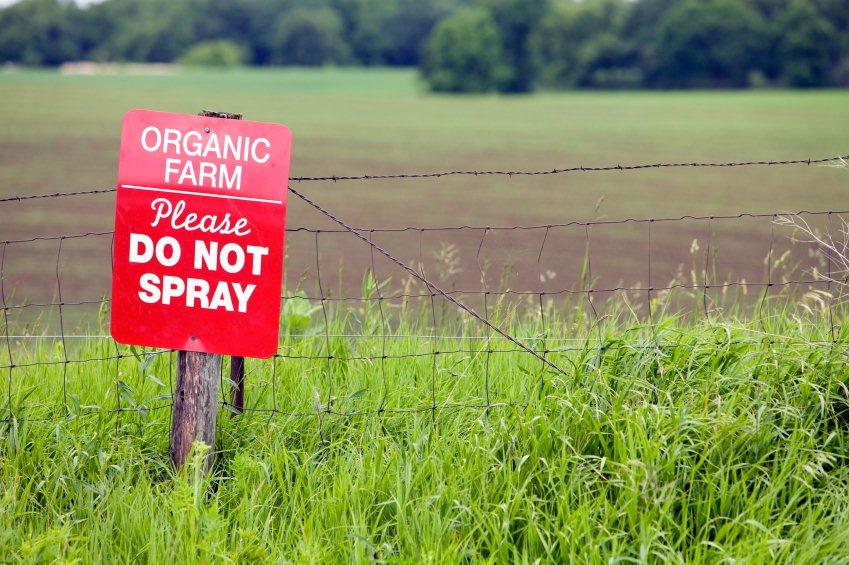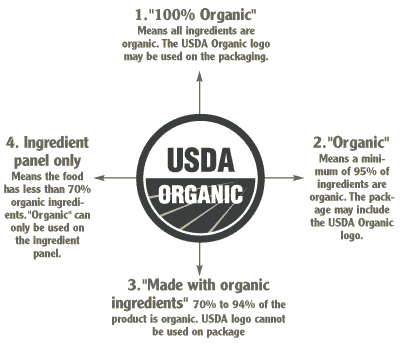 In the course of a healthier lifestyle, many of us prefer organic products. But, do we really know what we are getting when we buy products with a USDA (United States Department of Agriculture) organic label? In 2008, the USDA announced that 15 out of 30 organic certifiers were put on probation and had 12 months to make the required corrections or end up losing their accreditation. At that time, Chinese imports had an atrocious year making headlines for pet food and certified ginger being contaminated with dangerous pesticide that caused headaches, nausea, and blurred vision, among others. The levels of the unacceptable pesticide, namely aldcard, were way beyond what is allowed even for conventional ginger. Yet, these imported foods with the dangerous ginger were sold at Whole Foods Market under the 365 label! Of course, Whole Foods instantly pulled the product from its shelves, but that raises a serious question: Is the organic food we eat, really organic?
In the course of a healthier lifestyle, many of us prefer organic products. But, do we really know what we are getting when we buy products with a USDA (United States Department of Agriculture) organic label? In 2008, the USDA announced that 15 out of 30 organic certifiers were put on probation and had 12 months to make the required corrections or end up losing their accreditation. At that time, Chinese imports had an atrocious year making headlines for pet food and certified ginger being contaminated with dangerous pesticide that caused headaches, nausea, and blurred vision, among others. The levels of the unacceptable pesticide, namely aldcard, were way beyond what is allowed even for conventional ginger. Yet, these imported foods with the dangerous ginger were sold at Whole Foods Market under the 365 label! Of course, Whole Foods instantly pulled the product from its shelves, but that raises a serious question: Is the organic food we eat, really organic?
According to the national director of the Organic Consumers Association, most organic farmers comply with organic standards and play by the rules. However, with the Congress’ insufficient funding for enforcement, it is easy for players to cheat.
Why Organic Food in NOT always organic?
Admittedly, the USDA NOP (National Organic Program) does not give personal inspections to farms that produce USDA-certified organic food. You see, NOP is just a small agency within the USDA, which is already underfunded, with a handful of employees. They rely on other agencies, the so-called ACAs (Accredited Certifying Agencies) to inspect, evaluate, and ensure that these farms that bear the organic labels meet are well-worth the certification. That aside, the Chinese government forbids all foreigners to inspect their farms, so it takes additional steps to oversight the organic foods imported from Chinese farms. But, the issue with fraudulent Chinese organics is just the tip of an enormous iceberg. The larger problem is that ethical and sustainable eating is about relationships and cannot fit into the global mold of the rest of our food system. Take Cornucopia, for example. The watchdog agency reports to Aurora (private label milk supplier to Costco, Safeway, and Wal-Mart) and Horizon that have organic factory farms and milk thousands of cows annually. In 2008, the USDA decided to penalize Aurora for violations in regards organic standards.
What is Organic Food? The General Rule
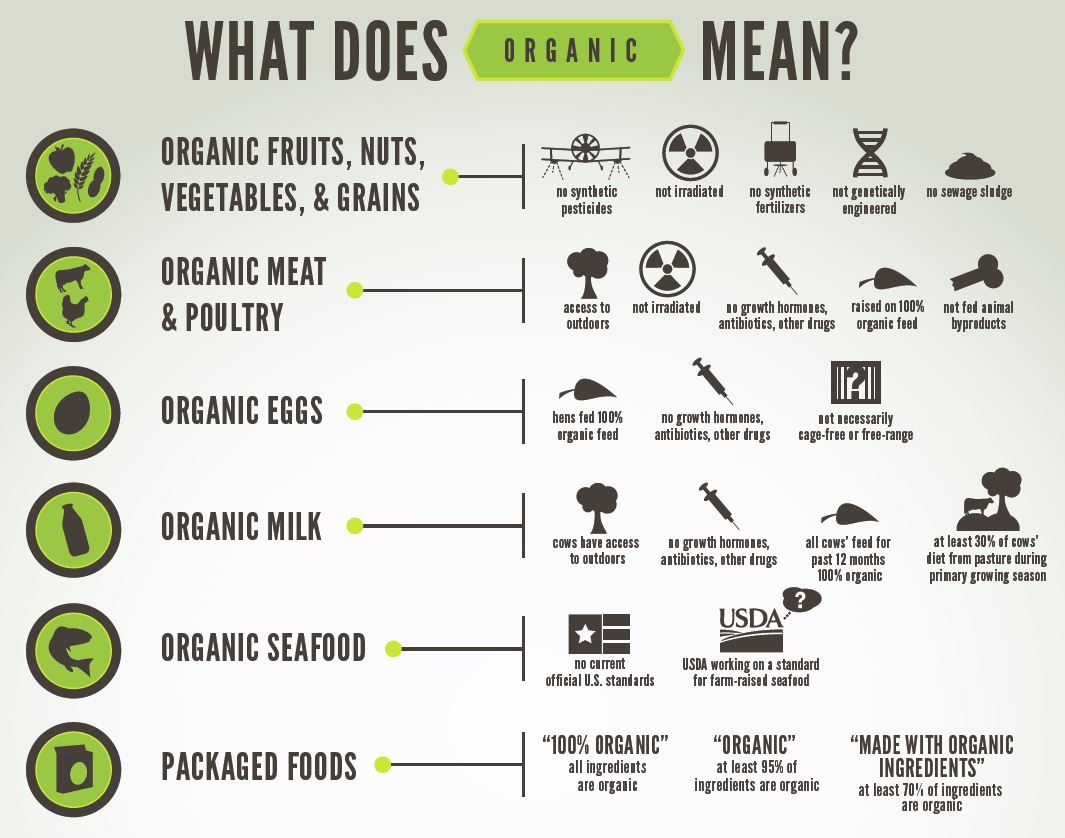 Organic food must adhere to particular standards as specified and regulated by the USDA. Crops are generally grown without irradiation (a method to kill bacteria with a form of radiation), synthetic pesticides, biotechnology, or artificial fertilizers. As for the animals that eat organically grown foods, they are raised without synthetic growth hormones or antibiotics and aren’t confined 100% of the time, unlike many animals on conventional farms.
Organic food must adhere to particular standards as specified and regulated by the USDA. Crops are generally grown without irradiation (a method to kill bacteria with a form of radiation), synthetic pesticides, biotechnology, or artificial fertilizers. As for the animals that eat organically grown foods, they are raised without synthetic growth hormones or antibiotics and aren’t confined 100% of the time, unlike many animals on conventional farms.
The Problem with Defining Organic
In the United States, the term organic is not an official term. Instead, organics that comply with the USDA organic standards are certified organic, and you may hear them referred to as USDA certified organic. When dealing with organic products, there are some exceptions.
To begin with, the term organic is not always well-defined. You see, in the majority of dictionaries organic means “Relating to, or derived from living organisms”. In the USA though, organic means various things. Currently, the term describes different sustainable and agricultural foods, cosmetics, body care products, furniture, textiles, bath care, mattresses, toys, and many more. In addition, organic is also used as an action. For instance, we hear people say “I prefer organic farming to conventional” or “I want to live organically.”
There are many cases that the term is inappropriately used. A perfect example is organic body care products. You will see many shampoos, for example, called organic, while containing chemicals that are not only harmful but also forbidden in organic agriculture.
Also, there are farmers that use sustainable growing methods, but don’t want to get certified because they sell organic products whose annual worth is less than $5,000 per year. Just because these farmers exempt from certification does not mean they don’t sell products that are really organic. This is a tricky exception because you will have to be aware of sustainable growing methods to spot organic foods. That said, it doesn’t mean a farmer isn’t really growing organically. It simply means that us, as consumers will probably have a harder time understanding whether a product is actually organic or not. So, in such cases, the better we are informed of the organic growing methods and the more questions we ask the grower about the methods they use, will help us determine organic integrity.
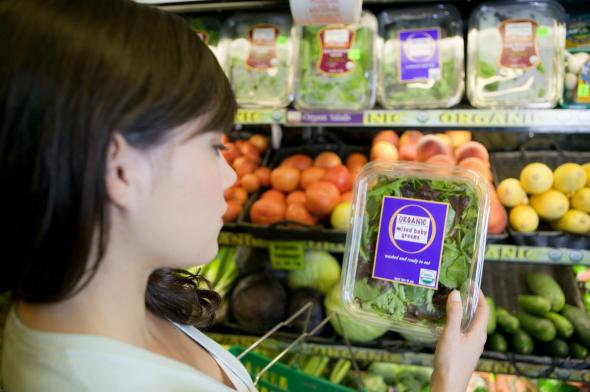 Another exception is that there are products that are not certified correctly. This is even more tricky because the USDA along with other accredited certifying agents have come under fire for baptizing products that don’t always follow the USDA organic certification standards are organic.
Another exception is that there are products that are not certified correctly. This is even more tricky because the USDA along with other accredited certifying agents have come under fire for baptizing products that don’t always follow the USDA organic certification standards are organic.
For example, an Inspector General report in 2010, found that the federal laws that govern organic are enforced in an extremely shocking way. The rather poor standards for certification confuse because if we can’t trust the certifying agents, the integrity of organic producers and growers fails miserably. And, unquestionably, we do need to be able to have full faith in the one’s doing such an important job for us.
Generally speaking, an product is considered organic in the USA when it:
- Has the USDA Organic Seal.
- Has been certified organic.
- Contains more than 95% organic ingredients (see image below for more detailed info)
So, what do we Do?
The best way to ensure you get high-quality organics is to get them directly from the farmer. CSAs (Community Supported Agriculture), which are arrangements that allow consumers to buy a share in a farm and get their weekly grocery, as well as farmers markets, are superb ways to make sure you do get organic food. Even if making the trip all the way to the farm is somewhat challenging for you, a farmers market sets regulations as per what is allowed and what is not permitted in the market, and a market manager visits every farm to make sure farmers adhere to the policies.
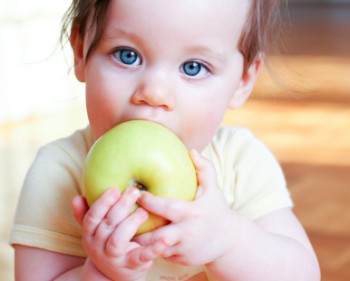 If you can afford it, buying local and organic is the best option. You will find reasonably priced locally grown organic products in the farmers’ markets. You can find the farmers’ market in your are here. Now, if you can’t afford to buy organic all the time (make sense), try to stay away from the fragile veggies and fruits, such as peaches, nectarines, spinach, pears, cherries, lettuce, strawberries, apples, celery, sweet peppers, potatoes, and imported grapes because they often require more pesticides to fight off bugs, as opposed to harder produce, such as broccoli. If you want to know more about the produce in relation to pesticide contamination, here is a list you can download.
If you can afford it, buying local and organic is the best option. You will find reasonably priced locally grown organic products in the farmers’ markets. You can find the farmers’ market in your are here. Now, if you can’t afford to buy organic all the time (make sense), try to stay away from the fragile veggies and fruits, such as peaches, nectarines, spinach, pears, cherries, lettuce, strawberries, apples, celery, sweet peppers, potatoes, and imported grapes because they often require more pesticides to fight off bugs, as opposed to harder produce, such as broccoli. If you want to know more about the produce in relation to pesticide contamination, here is a list you can download.
Finally, always look for the USDA seal when shopping for organic foods and packaged food. This will ensure that the dairy and meat products you buy are hormone- and antibiotic-free. If you are buying produce or meat that is not packaged, either ask the store clerk or look for the relevant sign.
